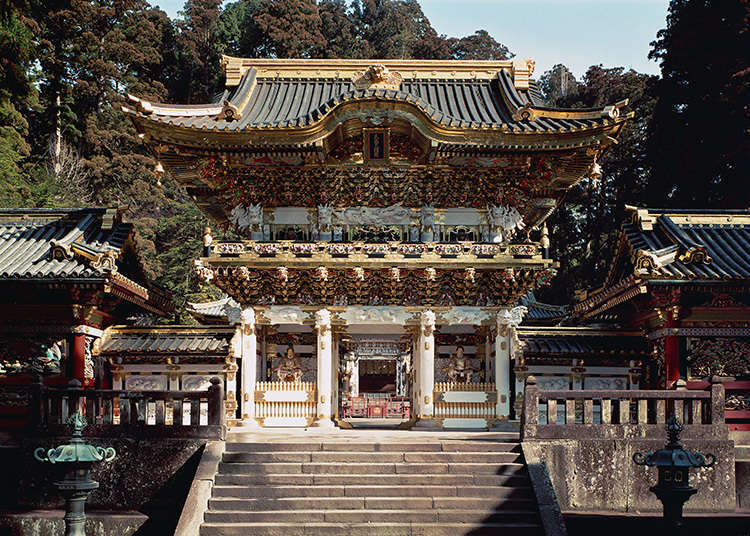
Nikko is located in the northwestern part of Tochigi Prefecture, best known for its vast and rich nature and the many famous sightseeing spots, including historical shrines and temples.
As it used to be the sacred land of mountain worship, many people visit Nikko for its distinctive mystical atmosphere.
1. Kegon Falls: One of Japan's Highest
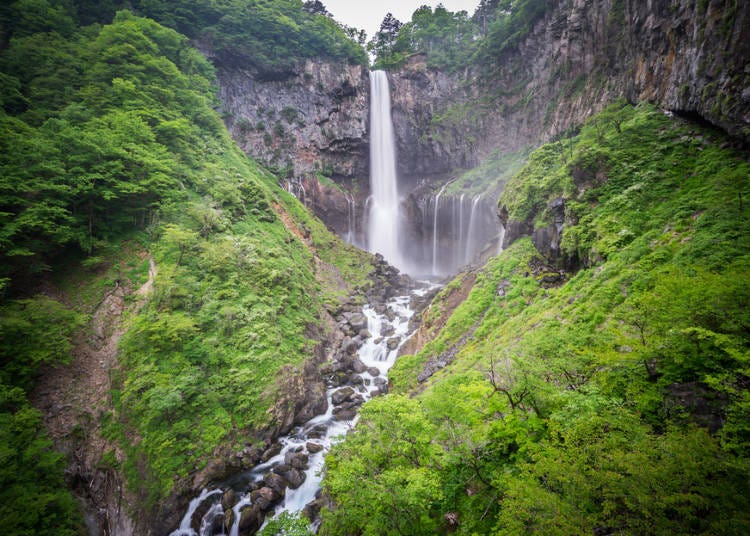
The Kegon Falls has an impressive height of 97 meters and is a representative natural landmark of Nikko. Legend goes that Kegon waterfall was named after the Kegon-kyo (Avatamsaka Sutra) which is one of the Buddhist scriptures. You can feel its mystical energy just by looking at the powerful waterfall.
With its stream coming from Lake Chuzenji, Kegon Falls is one of the Three Great Waterfalls of Nikko, next to Kirifurinotaki Falls and Uraminotaki Falls, making the area a major sightseeing spot.
If you take the elevator down to the waterfall viewing spot, you'll be able to get really close to the basin where the water falls with deafening sound. The powerful waterfall that was designated as a National Scenic Beauty in 1931 and its magnificent scenery is a sight you won't forget.
-

-
Address
Chuguushi, Nikko-shi, Tochigi, 321-1661
View Map -
Nearest Station
Nikko Station (JR Nikko Line)
-
Address
Chuguushi, Nikko-shi, Tochigi, 321-1661
2. Lake Chuzenji: A Place to Witness the Breathtaking Beauty of Changing Seasons
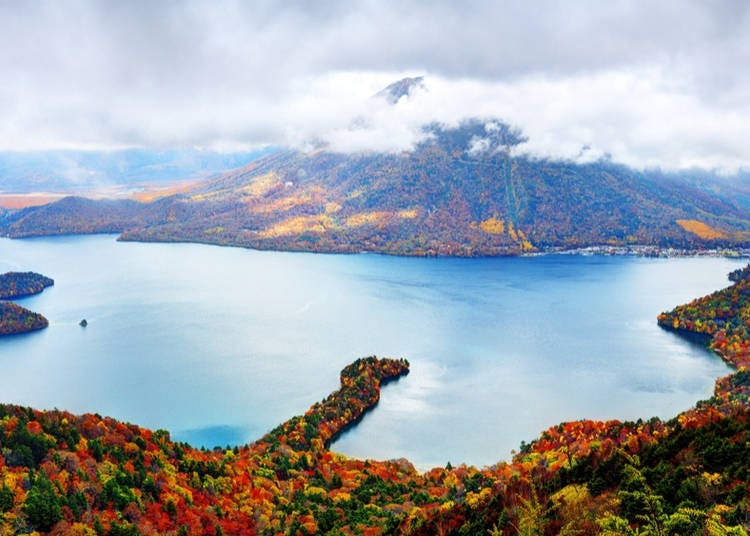
Lake Chuzenji is a lake situated in Nikko National Park that was created by a volcanic eruption as long as 20,000 years ago. It is the largest lake in Tochigi Prefecture with a perimeter of about 25 kilometers.
It is also known as the lake with the highest elevation level in Japan (among the lakes with an area of 4 square kilometers or larger, excluding artificial lakes).
The area used to be prosperous as a summer resort for international visitors and today, there are countless accommodations and restaurants by the lake.
The lake side is also dotted with hot springs and public baths with nature as the main backdrop of the area. The view of Lake Chuzenji changes with every season, such as azaleas in early summer and red leaves in autumn.
-

-
Address
Chuguushi, Nikko-shi, Tochigi, 321-1661
View Map -
Nearest Station
Nikko Station (JR Nikko Line)
-
Address
Chuguushi, Nikko-shi, Tochigi, 321-1661
3. The Great Waterfalls of Oku-Nikko
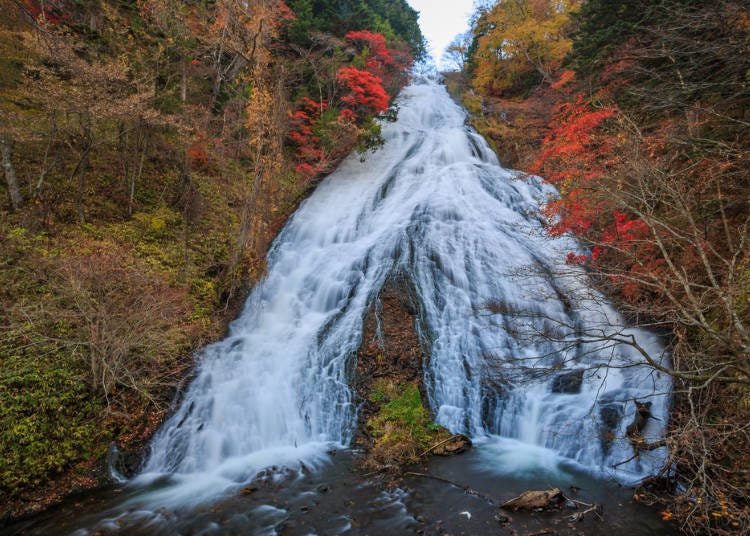
Yudaki is a great waterfall measuring 70m in height and 110m in length. This waterfall with its unique forked shape is one of the Three Great Waterfalls of Oku-Nikko, next to the Kegon Falls and Ryuzunotaki waterfall - not to be confused with the three great waterfalls of Nikko.
Yudaki can be found on the hiking trail continuing from Senjogahara. From the waterfall viewing spot near the basin, you'll get a magnificent view of it flowing down for about 70 meters along the surface wall of the south side of Yunoko Lake, located at the foot of Mt. Nikko-Shirane. The thundering sound of the water is almost deafening.
A promenade was built near the waterfall which allows you to get up close to where the stream begins, as well as viewing it from the side. An amazing spot like this naturally attracts many photographers.
-

-
Address
Yumoto, Nikko-shi, Tochigi, 321-1662
View Map -
Nearest Station
Tobu Nikko Station (Tobu Nikko Line)
-
Address
Yumoto, Nikko-shi, Tochigi, 321-1662
4. Akechidaira: A Spectacular View of Nikko
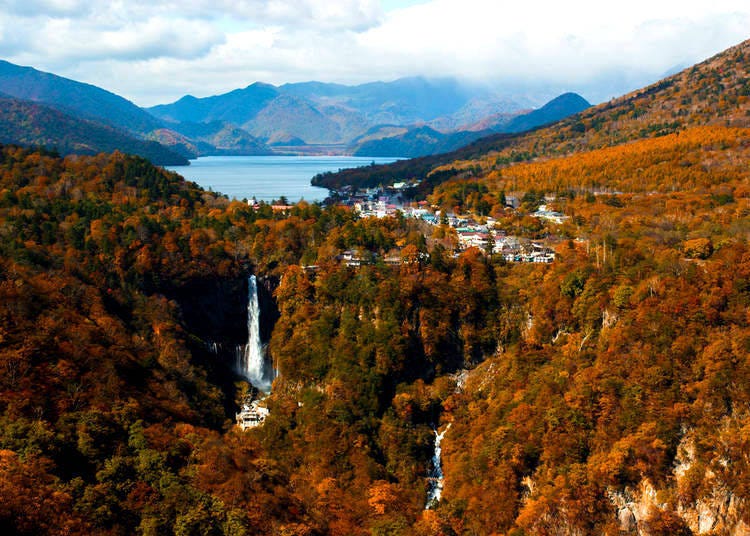
Akechidaira is located to the east of Lake Chuzenji and is known as a famous spot for viewing autumn leaves. Located at a height of approximately 1,437 meters above sea level and three minutes by ropeway, the view from Akechidaira observation platform is said to be the most beautiful in Nikko.
A panorama of Nikko's magnificent nature with Lake Chuzenji, Kegon Falls, and Mt. Nantai spreads in front of your eyes. From the observation platform, you can continue on to Lake Chuzenji by using the promenade, a perfect place for those who enjoy trekking.
The view from the steel tower located twenty minutes from the observation platform is also recommended. You can feel the power of nature come alive with a view that changes from season to season.
-

-
Address
Hosoo, Nikko-shi, Tochigi Fukazawa, 321-1445
View Map -
Nearest Station
Nikko Station (JR Nikko Line)
-
Address
Hosoo, Nikko-shi, Tochigi Fukazawa, 321-1445
5. Nikko Tosho-gu Shrine: A Masterpiece of Elaborate Design
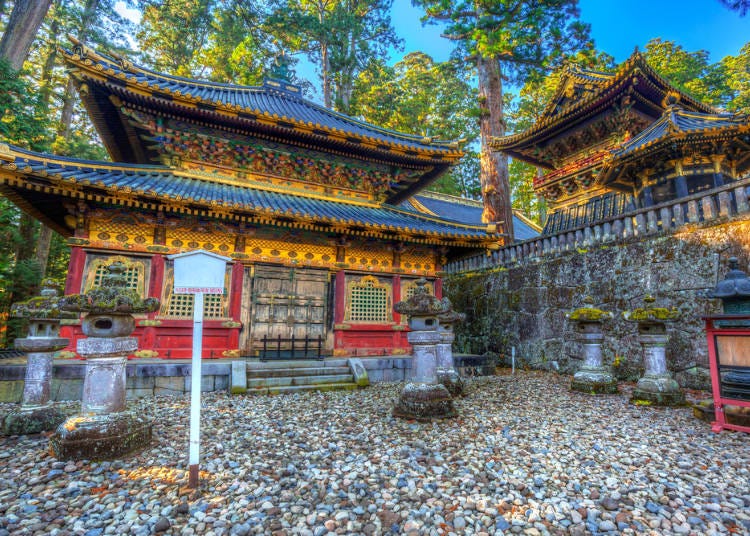
Nikko Tosho-gu Shrine enshrines Ieyasu Tokugawa, the Sengoku daimyo (a feudal lord during the period of civil wars in Japan) who lead the country into the Edo period by establishing Japan's shogunate as the first shogun. A lot of people from within the country and abroad visit this famous shrine.
The history of the shrine goes back to the year 1616 when Ieyasu passed away and was enshrined there as a deity. In the precincts, there are 55 buildings including eight national treasures and 34 important cultural properties.
In 1999, the entire complex was registered as a UNESCO World Heritage site as Temples and Shrines of Nikko. Yomeimon Gate has a luxurious atmosphere and the engravings on it are gorgeously colored by skillful artisans.
The carvings of the three wise monkeys and Nemuri-neko (sleeping cat) are everywhere and it's breathtakingly beautiful.
-

-
Address
2301, Sannai, Nikko-shi, Tochigi, 321-1431
View Map -
Nearest Station
Nikko Station (JR Nikko Line)
20 minutes on foot
- Phone Number 0288-54-0560
-
Address
2301, Sannai, Nikko-shi, Tochigi, 321-1431
6. Nikkosan Rinno-ji Temple
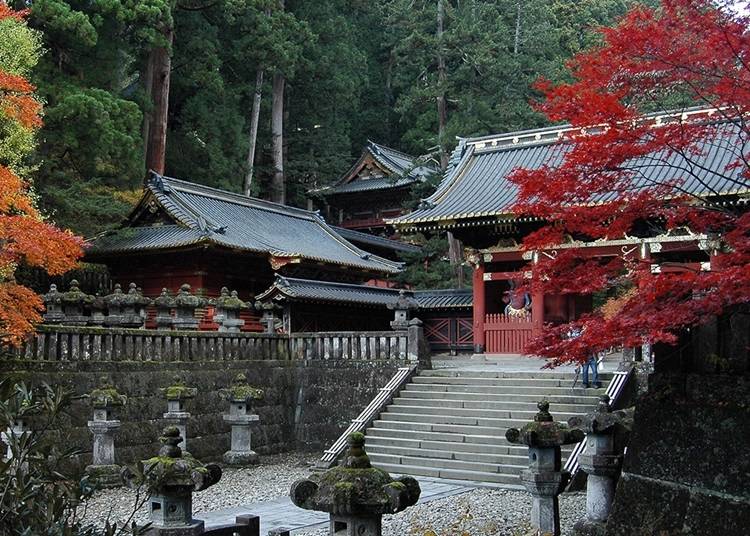
The Rinno-ji Temple has a rich history of more than 1250 years.
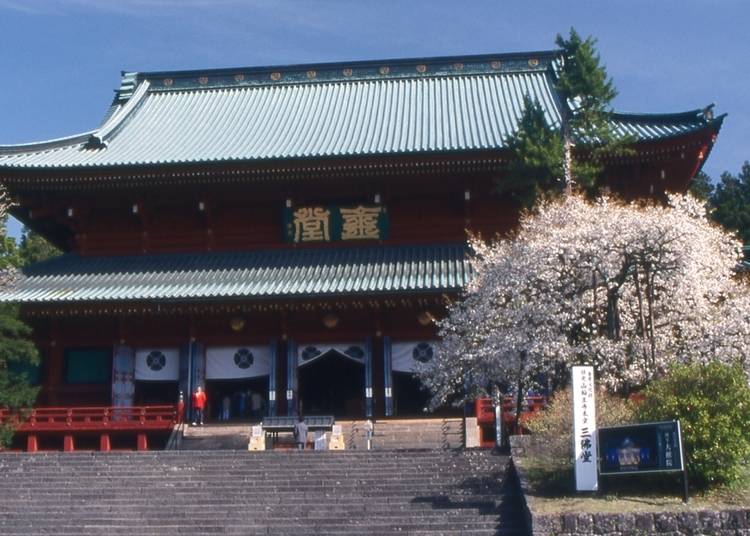
The main temple, Sanbutsudo Hall, is one of the largest wooden structures in Nikkosan, with three impressive 7.5-metre high Buddhist statues.
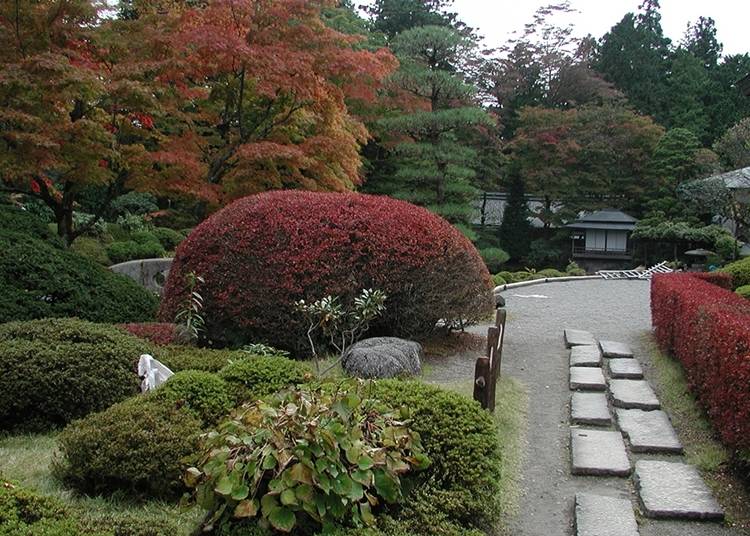
Visitors should also view the Gomado Hall, with statues of the gods of fortune, and the temple's treasure house with a number of important cultural properties. The beautiful Shoyoen garden, in traditional Japanese style, features a path around a pond.
7. Nikko Futarasan-Jinja Shrine
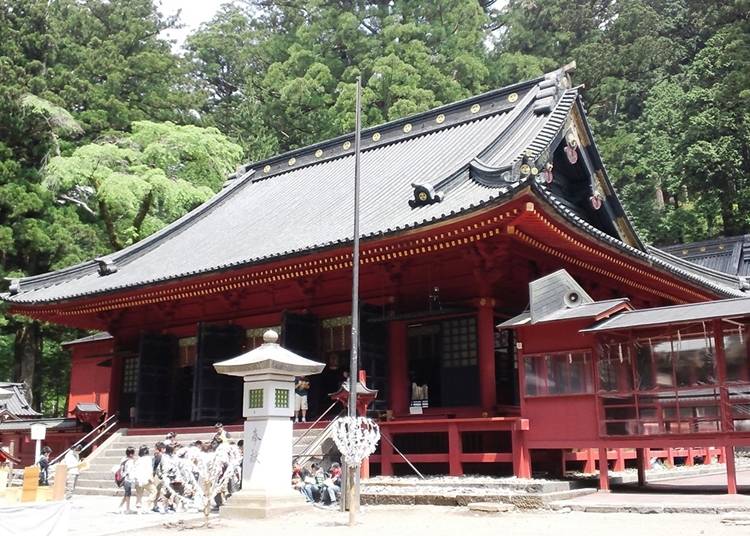
As a center of mountain worship, Futarasan Shrine is regarded as an 'ujigamisama' – a guardian of the area.
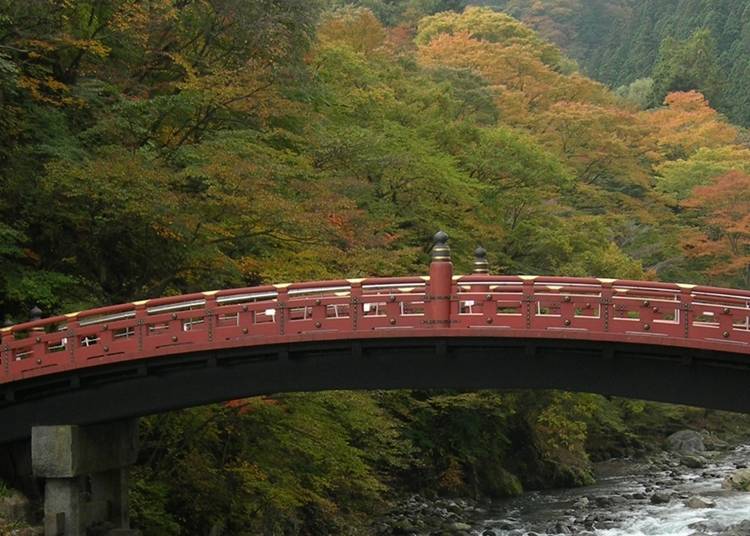
It is the oldest of the three World Heritage sites in Nikko, constructed in 782, and deifies Mt. Nantaisan, a magnificent volcano in the Nikko National Park. The iconic red Sacred Bridge is one of its most well-known spots, and the shrine's architecture and gardens are registered under World Heritage. This shrine is often visited by those praying for marriage, pregnancy, and the safe delivery of babies.
-

-
Address
2307, Sannai, Nikko-shi, Tochigi, 321-1431
View Map -
Nearest Station
Nikko Station (JR Nikko Line)
- Phone Number 0288-54-0535
-
Address
2307, Sannai, Nikko-shi, Tochigi, 321-1431
8. Mt. Nantaisan
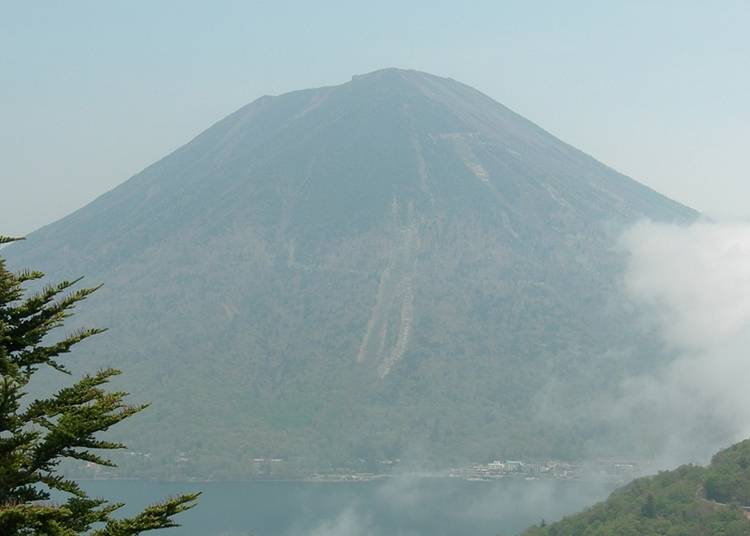
One of the 100 Famous Mountains in Japan, Mt. Nantaisan is a 2,485m volcano within the Nikko National Park and a place of nature worship.
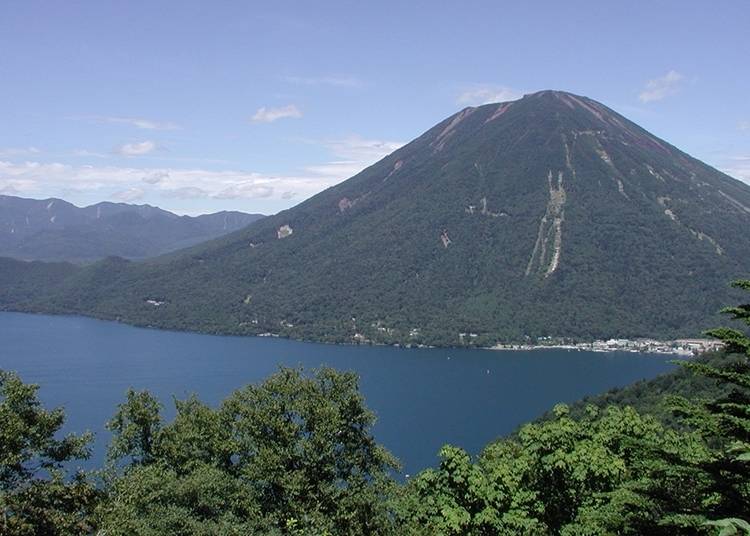
Visitors can walk to the 'Chugushi,' a shrine built on the middle ground of the Futarasan Shrine, and climb the many stone steps to the Okumiya shrine built at the top.
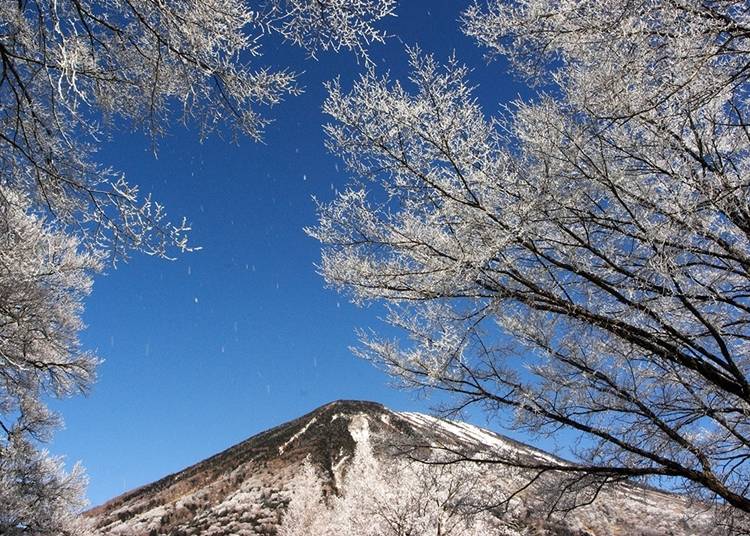
A mountain trail is open to advanced climbers from May 5 to October 25 every year, and it takes 3-4 hours to climb up the 4km trail.
9. Senjogahara Plateau
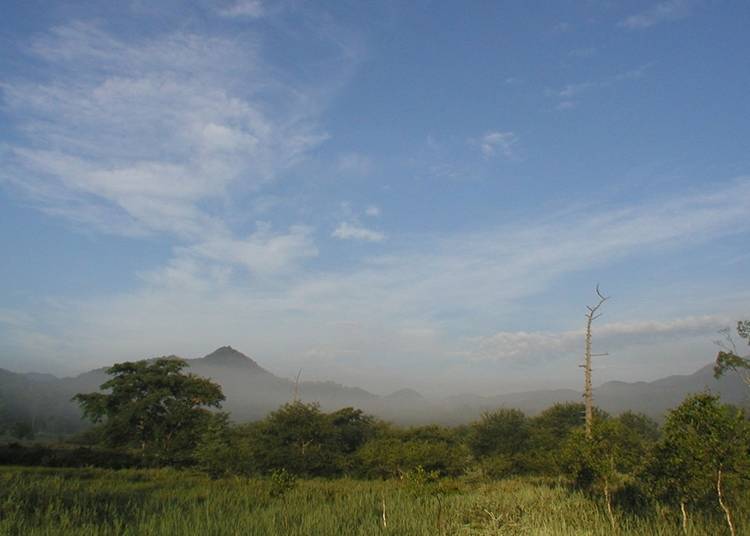
Senjogahara is a large marshland home to more than 350 species of native plants and wild birds, much of which is protected under the Ramsar Convention.
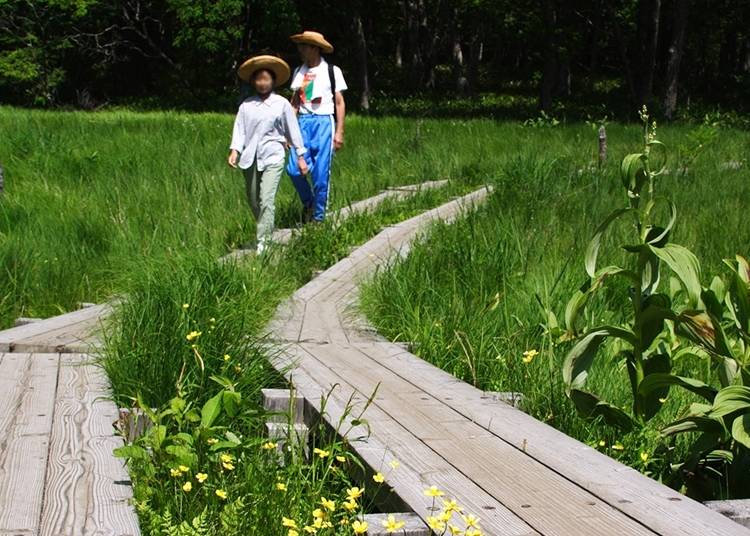
Visitors can enjoy a pleasant hiking course on the wooden walkway, which takes about 2 hours.
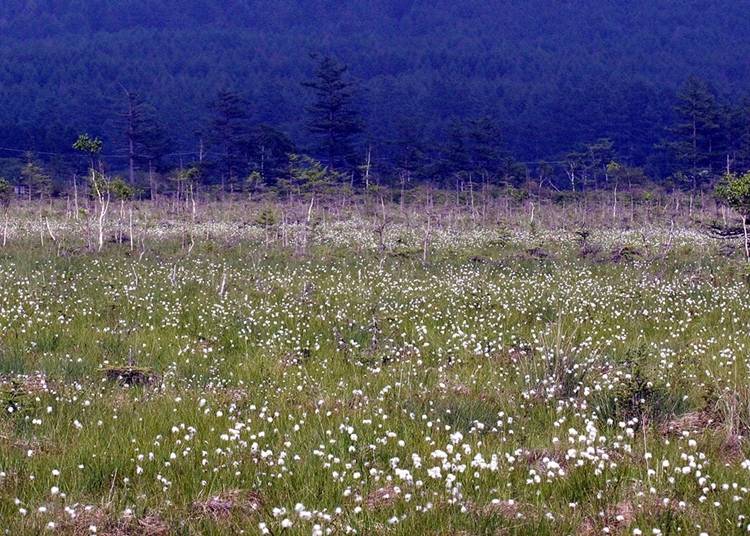
The best time of year to visit is from mid-June to early August when fields of flowers are in full bloom, and in the autumn when the tall grasses turn orange and red.
-

-
Address
Chuguushi, Nikko-shi, Tochigi, 321-1661
View Map -
Nearest Station
Nikko Station (JR Nikko Line)
-
Address
Chuguushi, Nikko-shi, Tochigi, 321-1661
10. Odashirogahara Plateau
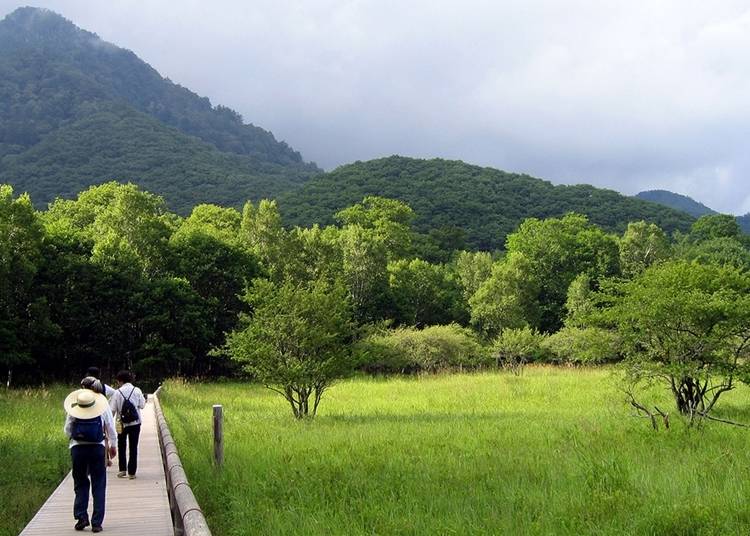
The picturesque grassy plains of Odashirogahara lie west of the Senjogahara marshlands, and nature lovers come to admire the unique landscape.
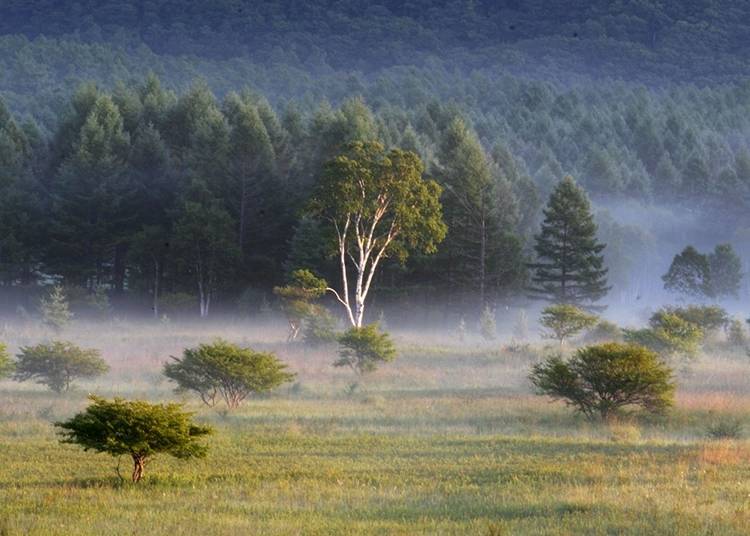
Surrounded by a forest of Mongolian oaks, you can walk a 2km path and view all the colors of nature. A single Japanese white birch tree standing in the middle of the prairie is known as the 'Lady of Odashirogahara' and is a popular photo spot.
11. Yunoko Lake
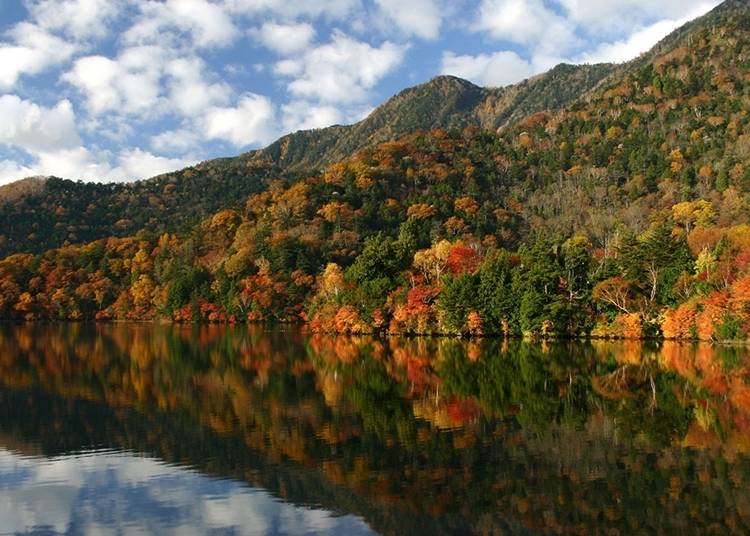
With beauty from every angle, Yunoko Lake offers a scenic one-hour walking course that takes you through a primeval forest and along the lakeside.
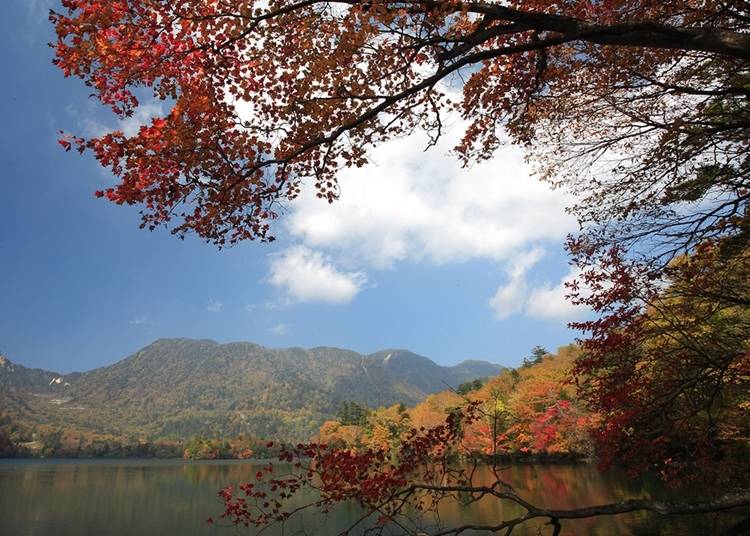
The most popular time to visit is from the end of September to mid-October when the waters reflect the magnificent colors of autumn leaves.
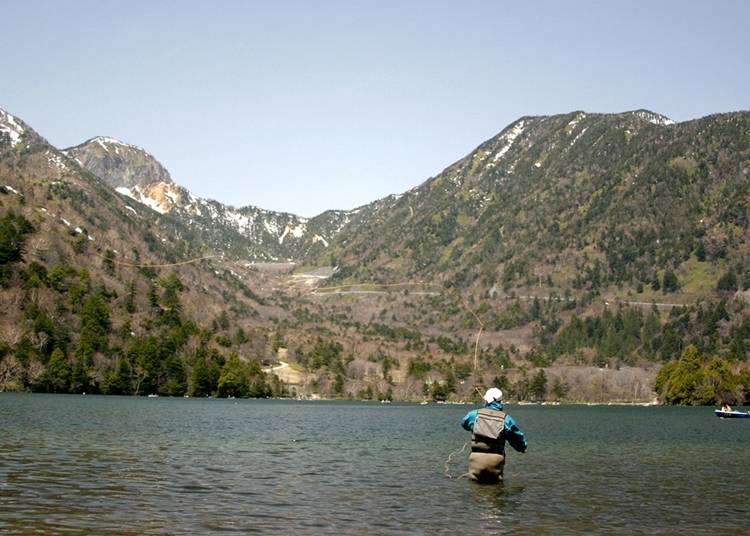
This lake is protected under the Ramsar Convention and is a site for bird watching.
12. Akechidaira Plateau
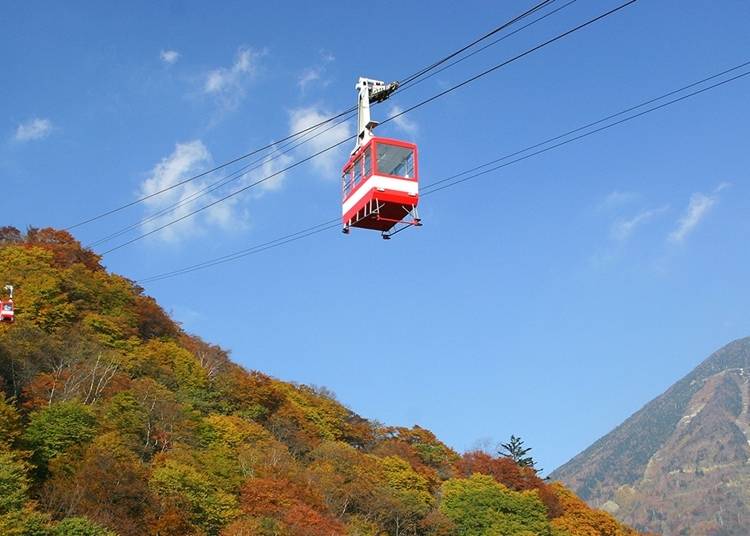
The ride up the Akichidaira Ropeway may only take 3 minutes, but the views of Chuzenji Lake, Mt. Nantaisan, and Kegon Falls are unforgettable. Visitors board the ropeway cable car at the Akechidaira Plateau, near the top of the scenic winding 'Irohazaka Slope' road. This trip is especially popular in autumn during the change of colors and cherry blossom season when the valley below is a kaleidoscope of colors.
13. Iroha-zaka Slope
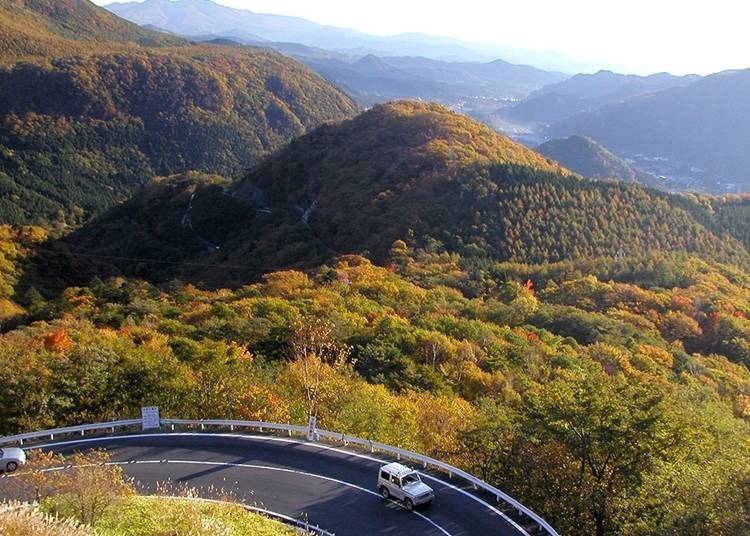
It's one of the most beautiful drives in Nikko – the 48 sharp curves that make up the winding Irohazaka Slope give drivers a scenic view around every corner.
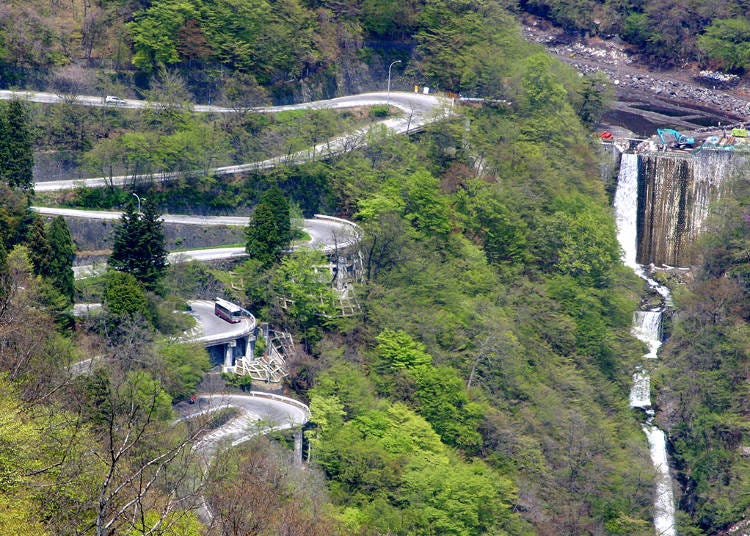
The first slope takes you up the mountains, and the second slope brings you back down again. But try to avoid going during the peak of the autumn leaves period, when it becomes impossible to avoid a traffic jam!
-

-
Address
Chuguushi, Nikko-shi, Tochigi, 321-1661
View Map -
Nearest Station
Nikko Station (JR Nikko Line)
40 minutes by bus
-
Address
Chuguushi, Nikko-shi, Tochigi, 321-1661
14. Kirifuri Kogen Highlands
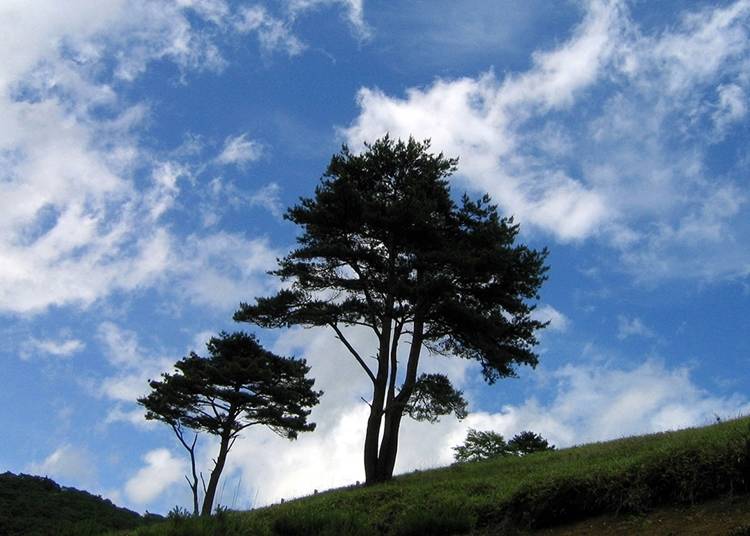
The Kirifuri Kogen Highlands is a plateau on the side of Mt. Akanagisan which offers a variety of lovely hiking trails.
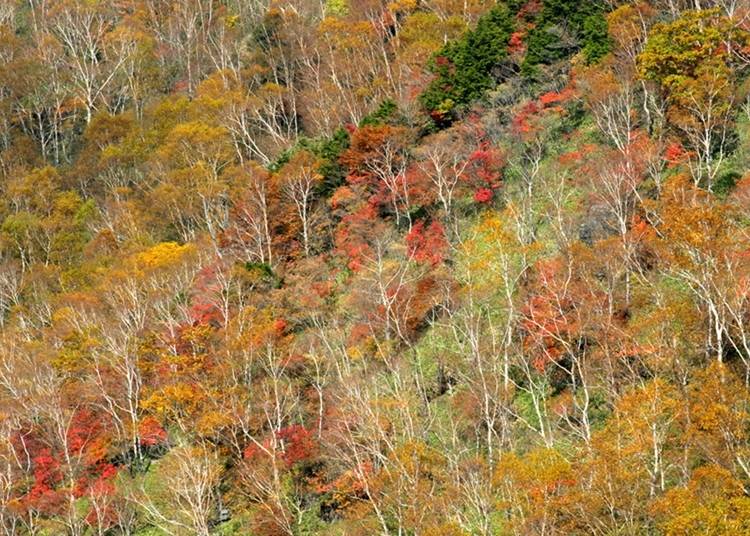
Every year in late June, visitors flock to see more than 260,000 lilies come into full bloom. For those who don't mind climbing, the 1,445 step Tenku Kairo, or "Corridor in the Sky," takes you to a beautiful lookout point. There are campsite facilities, and in winter you can enjoy sports such as skiing and snowshoeing.
-

-
Address
Tokorono, Nikko-shi, Tochigi, 321-1421
View Map -
Nearest Station
Nikko Station (JR Nikko Line)
-
Address
Tokorono, Nikko-shi, Tochigi, 321-1421
15. Nikko Kaido Suginamikimichi (Nikko Road Cedar Path)
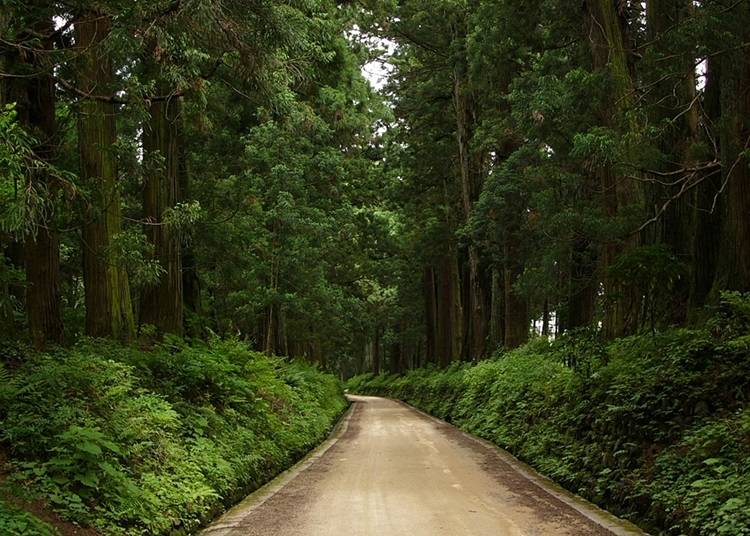
In the Edo period, the road leading up to the Nikko Toshogu Shrine was planted with 50,000 cedar trees as a contribution to the shrine.
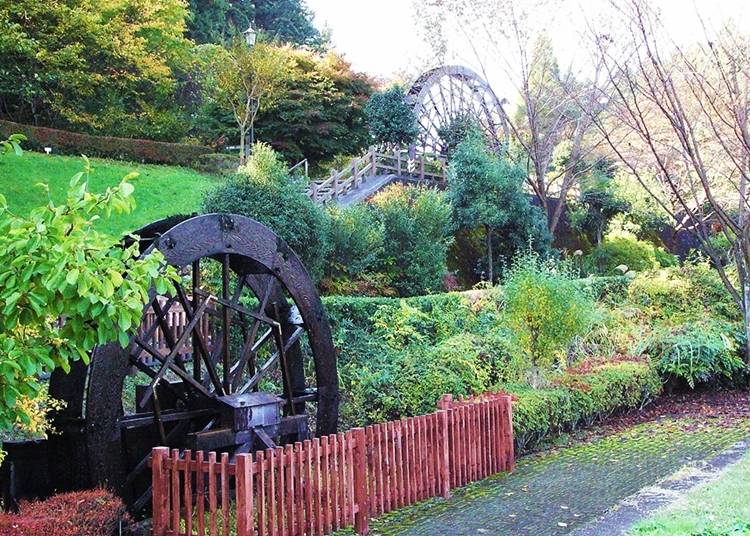
This monumental task took over 20 years, and the 35.41km path is recognized by the Guinness Book of Records as the longest tree-lined road in the world. Currently, only 12,500 trees remain, but this scenic road retains its mesmerizing quality.
16. Kanmangafuchi Abyss
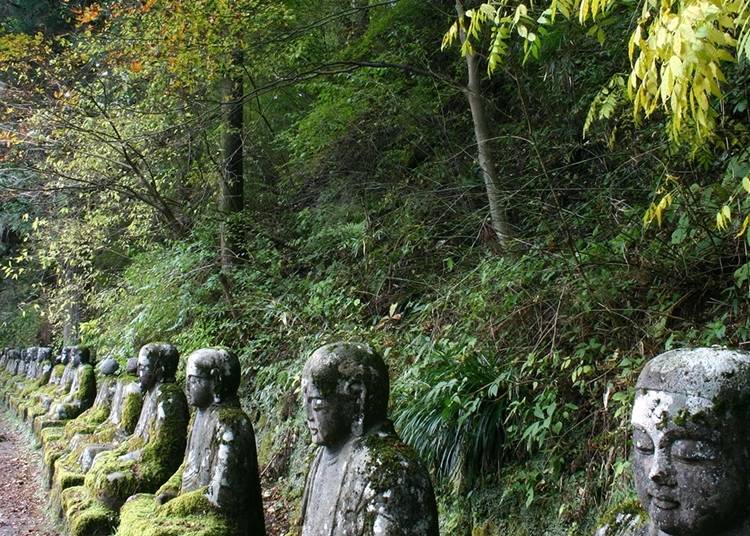
Once when Mt. Nantaisan erupted, it spewed lava into the Daiyagawa River, creating a beautiful and mysterious abyss of black lava, called the Kanmangafuchi Gorge.
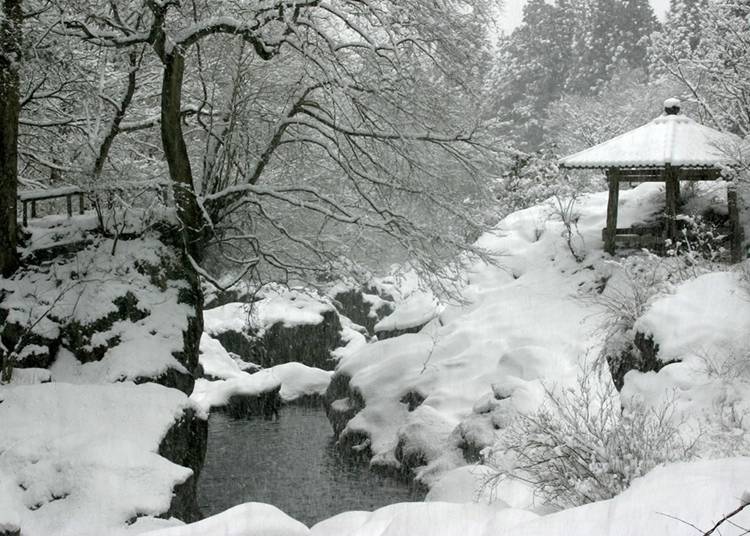
The path leading to the gorge is known for its row of about 70 stone 'Jizo' statues, which legend says changes every time you count them.
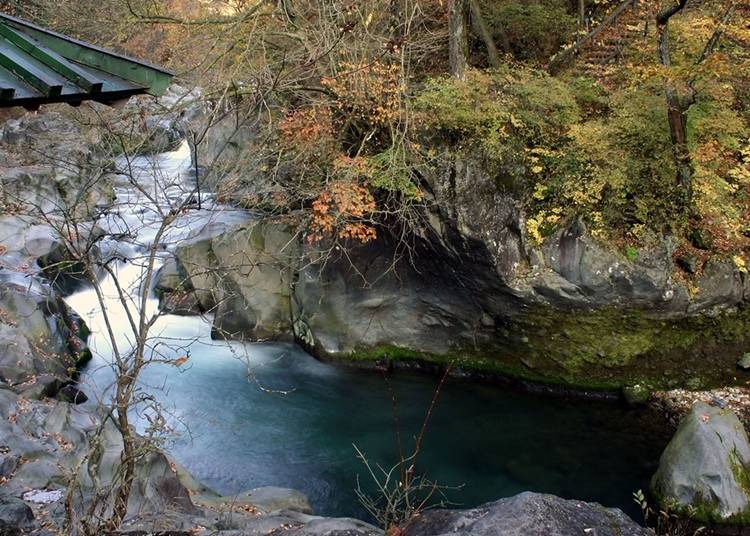
In addition, visitors can see the Sanskrit characters believed to be carved by Saint Kobo Daishi.
17. EDO WONDERLAND Nikko Edomura
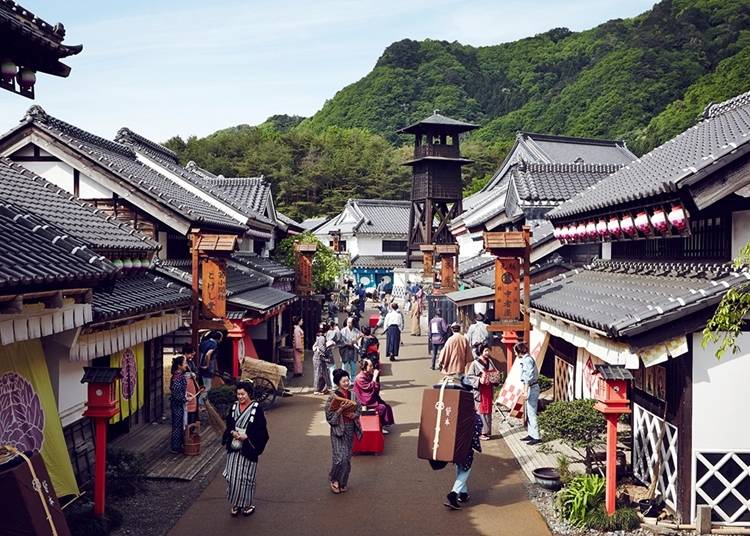
Experience what life was like in the 17th century at Edo Wonderland, where traditional architecture and towns have been carefully recreated to take you back in time.
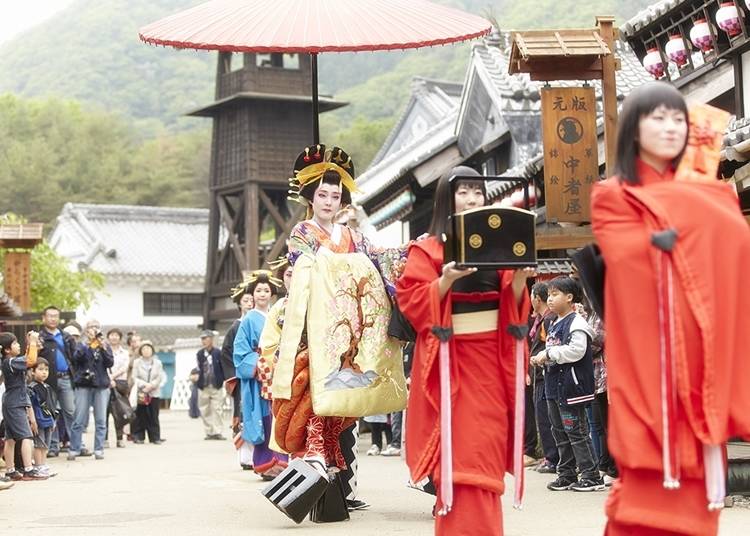
Be thrilled at the Ninja Theatre, watch the regal Procession of Oiran Courtesans, and dress up Edo Style in period pieces. There are lots of games and activities for kids to participate in, as well as delicious restaurants to choose from.
-

-
Address
470-2, Karakura, Nikko-shi, Tochigi, 321-2524
View Map -
Nearest Station
Kinugawa-Onsen Station (Tobu Kinugawa Line)
- Phone Number 0288-77-1777
-
Address
470-2, Karakura, Nikko-shi, Tochigi, 321-2524
18. Nikko-yuba
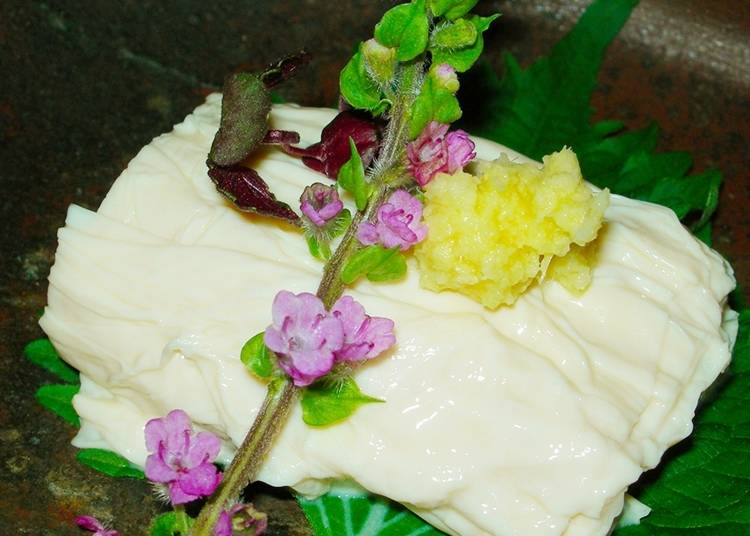
Visitors to Nikko should try a local specialty, 'yuba', or tofu skin.
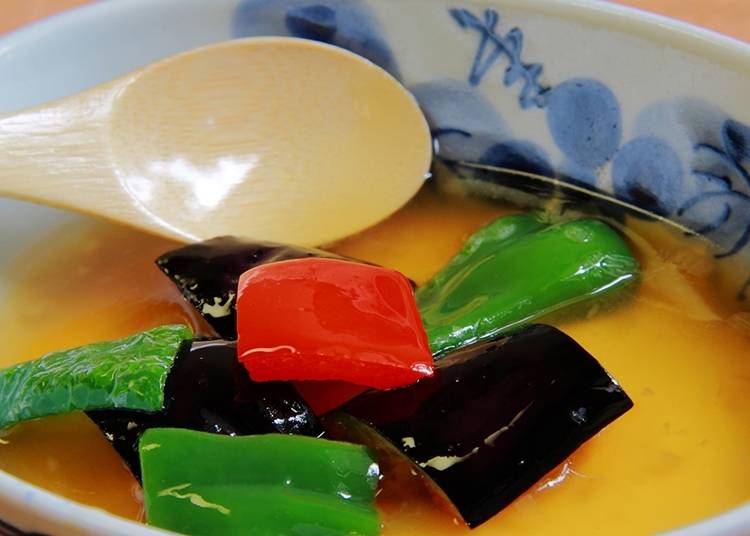
Made by collecting the top layer of boiled soymilk, yuba can be eaten soft and fresh, much like sashimi, or dried and used in cooking. The smooth, silky texture is sure to please, and it is a healthy and delicious dish too!
19. Nikko Toshogu Shrine Annual Grand Spring Festival
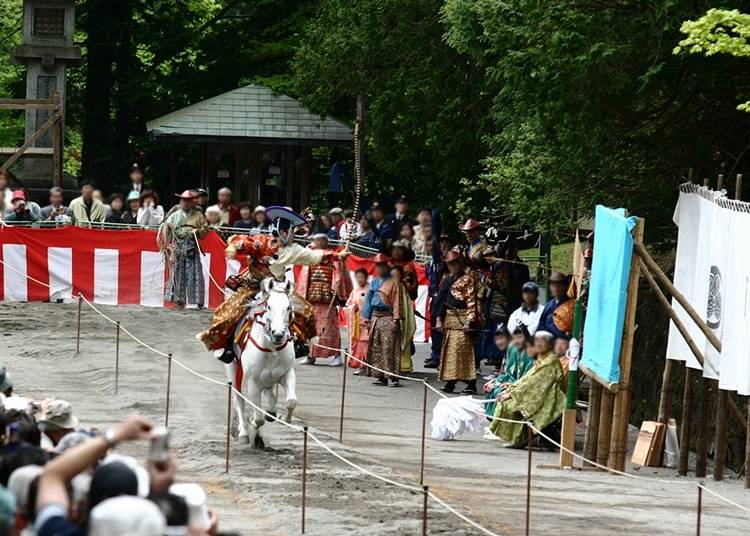
This fantastic two-day event is the biggest annual festival of the Nikko Toshogu Shrine.
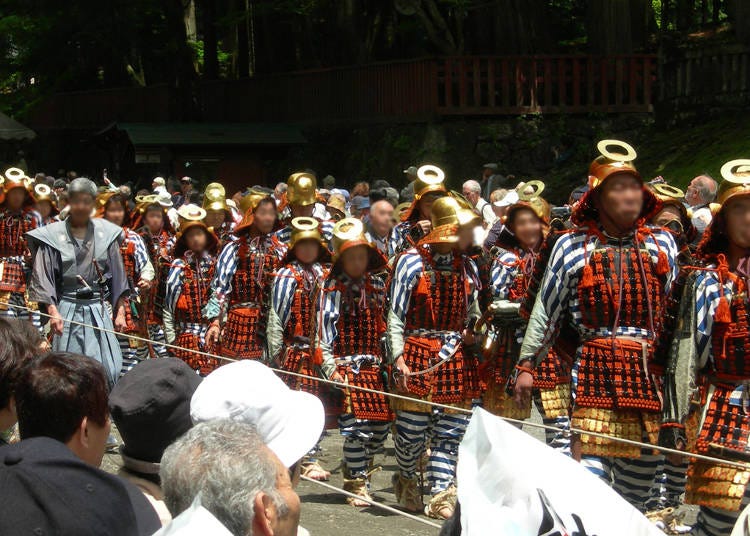
One of the highlights is the 'yabusame' ritual on May 17, whereby archers riding on horseback show off their incredible skills with bow and arrow.
On May 18, more than 1,000 men in traditional samurai warrior outfits march the streets and recreate the scene where the grave of shogun Tokugawa Ieyasu, who is enshrined at Toshogu, is transferred from Mt. Kunousan in Shizuoka Prefecture to Nikko to become his final resting place.
20. KAMAKURA Snow House Festival
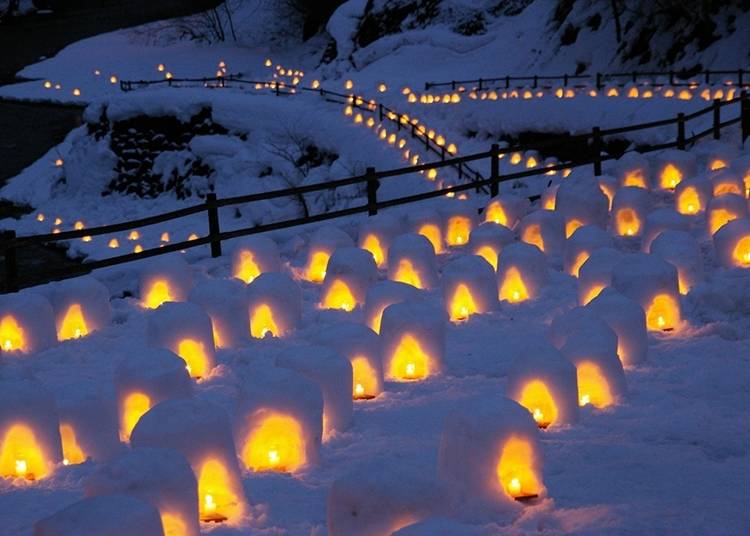
The tiny onsen town of Yunishigawa, deep in the mountains of Tochigi, draws visitors every year with this delightful festival.
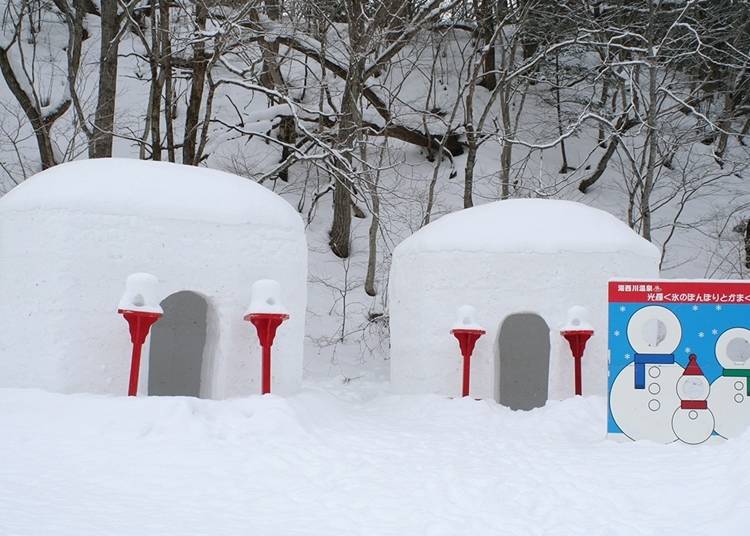
Hundreds of tiny huts of snow, or 'kamakura', are lit up from the inside, creating a beautiful atmosphere alongside the river every night.
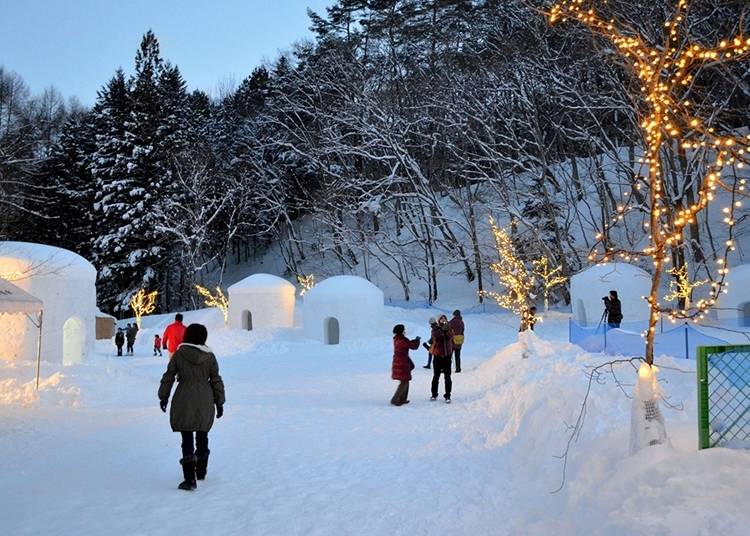
Held annually by the Yunishigawa Onsen, visitors can enjoy winter sports during the day, and feast on a BBQ held in a full-sized kamakura.
Visit Nikko and Have a Mystical Experience!

So if you're looking for a place to experience the beauty of Japan's nature without having to travel far from Tokyo, take the journey to Nikko and see it for yourself!
- Area
- Category
*Prices and options mentioned are subject to change.
*Unless stated otherwise, all prices include tax.
Popular Tours & Activitiess
Recommended places for you
-

Road Trip Around Izu Peninsula: Stunning Views, Hidden Gems, and Relaxing Hot Springs
by: Hide
-
Ad

In the Heart of Japan: Why Gifu City Deserves a Spot on Your Itinerary (Cormorant Fishing, Gifu Castle, Nightlife & More!)
-

The Best of Japan's Flavors and Fun! Don Quijote's New "DONKI MEMORIES" Project is Mind-Blowing
-

Top 3 OSHI MAPs for the Best Matcha and Sweets in Tokyo
by: Guest Contributor
-
Ad

Discover Tokunoshima, The Hidden Paradise in Southern Japan
-

To the Holy Land of Kawaii! Odakyu Tama Center Station Is Becoming a Dreamy Sanrio Wonderland
by: Guest Contributor
-

Ultimate Tokyo Transit Guide: JR, Subways, and Private Railways Explained, Plus Suica/PASMO and Money-Saving Passes
-

(Video) Walking Tour along Narita Omotesando - Quaint Historical Village near Narita Airport!
by: Victor Gonzalez
-

Outdoor sports and local delicacies in Miyazaki's UNESCO biosphere reserves
-

Healthcare in Japan for Tourists: What to Do When You Get Sick or Injured in Japan
-

Ueno Station Area Guide: Fun Ways to Explore Tokyo's Popular Destination (Area Map & Sightseeing Tips)
-

10 Important Japanese Phrases to Know Before You Enter a Japanese Convenience Store
by: Teni Wada
- #best ramen tokyo
- #what to buy in ameyoko
- #what to bring to japan
- #new years in tokyo
- #best izakaya shinjuku
- #things to do tokyo
- #japanese nail trends
- #what to do in odaiba
- #onsen tattoo friendly tokyo
- #daiso
- #best sushi ginza
- #japanese convenience store snacks
- #best yakiniku shibuya
- #japanese fashion culture
- #best japanese soft drinks




















